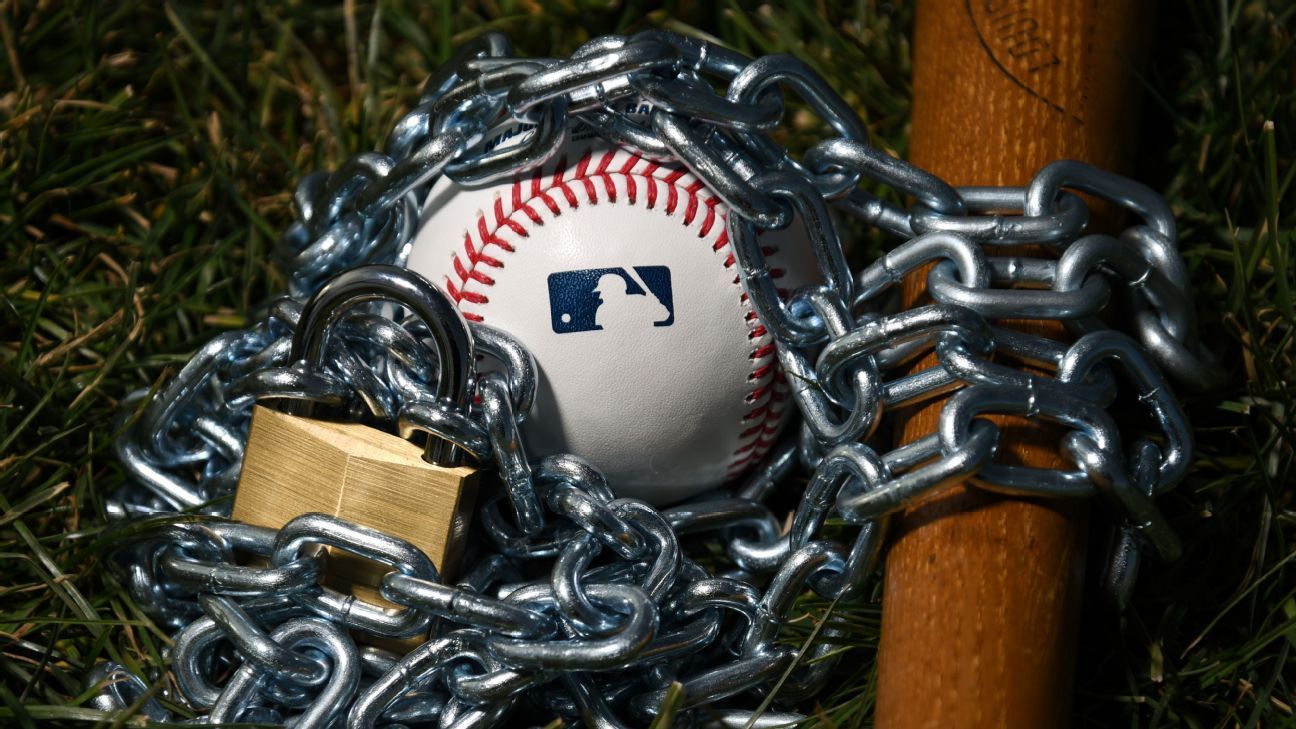
The MLB lockout is nearly three weeks old, and it seems like not much has come out of the negotiations. So what exactly is going on between the owners and players? Are they moving any closer to a deal? And most importantly: When is it time to worry about the sport's immediate -- if not long-term -- future?
ESPN baseball expert Jesse Rogers tackles those questions and more.
Latest: MLB, players' association met Thursday for first time since lockout began Dec. 1 | Shadow men: Players mocking MLB silhouettes
More: Lockout FAQ | A brief history of MLB labor stoppages (ESPN+) | 'Oh my God, how can we do this?': An oral history of the 1994 MLB strike
Did the two sides meet last week?
Yes. But only on some of the smaller or "noncore economic" issues, which wouldn't necessarily even involve the lead negotiators from both sides, although at least there was communication. These noncore issues -- which might include scheduling, the All-Star Game, drug and domestic violence policies, grievance procedures and special events -- are worth discussing, but the only conversations that will get us closer to ending the shutdown will be on the major economic issues that forced the lockout in the first place.
Are they planning to meet this week?
Nothing is scheduled for Christmas week, but that can always change if one side or the other has something to add or change or say about a proposal -- but even then, it would most likely remain on those noncore topics.
How much progress has been made?
Very little so far. January will be a big month in determining when the lockout ends. The core economic issues will be back on the table in the new year, and serious negotiations should take place. It's anyone's guess right now if that will happen on Jan. 2 or Jan. 22, but the sides can't avoid the train coming down the tracks (especially since spring training typically begins in February). To break the deadlock, one or both sides is going to have to give a little on a major issue.
What kind of major issue?
Nothing big -- just the economic systems that have been in place for decades. Sarcasm aside, there are several key hot topics which need resolving, including years to free agency (or the switch to an age-based system), the arbitration system and revenue sharing among clubs. Paraphrasing here -- the players say they're working under antiquated rules, while the league says these are core issues to the way the game has played, which have long since been agreed upon. That's the deadlock.
Why can't they compromise?
The union was not at all happy with how the 2016 collective bargaining agreement negotiations turned out -- or, they say, how the game has changed since. So this year, the players need a win. The league believes they've offered them a few in the form of an NBA-style draft lottery and/or the elimination of draft pick compensation for free agents. Obviously, the union doesn't think that's enough.
How concerned should fans be at this point?
Not very, yet -- but we'll know much more in a month.















 Phone: (800) 737. 6040
Phone: (800) 737. 6040 Fax: (800) 825 5558
Fax: (800) 825 5558 Website:
Website:  Email:
Email: 






